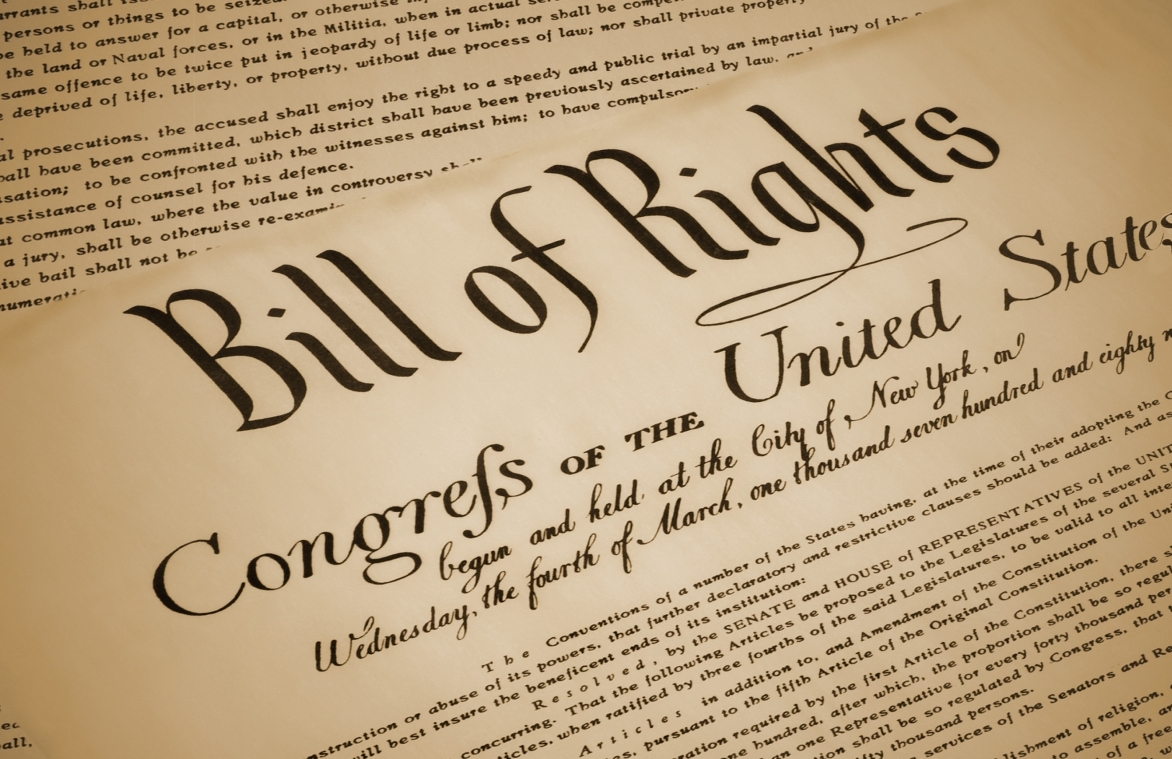When it came to battles over First Amendment freedoms, 2022 was so last century.
A review of the biggest developments affecting freedom of expression over the past year reminds us that though the First Amendment’s wording remains unchanged, its principles can be reinterpreted, often in cyclical fashion. 2022 had echoes of past decades.
Presumably “settled law” was abandoned, modified or challenged, demonstrating the fluidity of the 45 words that have gone unchanged since 1791:
Prayers on a football field: In 1971, the U.S. Supreme Court established guidelines for determining whether the First Amendment’s ban on the establishment of religion was being violated. The three-pronged Lemon test assessed whether the government action had a secular purpose, whether the primary effect of the action would advance or inhibit religion, and whether there would be excessive government entanglement with religion.
By 1984, that test was supplemented with “the endorsement test,” formulated by former Justice Sandra Day O’Connor to assess whether government was unconstitutionally favoring a faith.
Together, they essentially barred a teacher or coach at a public school from leading prayers in a classroom or on an athletic field. That changed in 2022 when the U.S. Supreme Court announced that the previous tests were no longer valid and opted instead for a requirement that the establishment clause be evaluated “in light of historical practice and understanding.”
The shift came in 2022 in Kennedy v. Bremerton School District, a case in which a high school football coach repeatedly gathered players together at the 50-yard line after games to share in prayers. The Supreme Court characterized the coach’s actions as private and not a violation of the establishment clause.
Race in the public classroom: There are examples throughout the 20th century of the government trying to control what public school educators can teach. By far the most visible was the legendary Scopes trial in 1925, which focused on the Butler Act, a Tennessee law prohibiting the teaching of evolution in public schools. The American Civil Liberties Union sought a test case and recruited teacher John T. Scopes to defy the law and be prosecuted.
The topic — and the participation of well-known attorneys William Jennings Bryan and Clarence Darrow — gave the case and the town of Dayton, Tenn., where the trial was held, international visibility. On appeal, the Tennessee Supreme Court overturned Scopes’ conviction on a technicality, but declined to rule on the constitutionality of the Butler Act. It wasn’t until 1968 that the U.S. Supreme Court struck down a similar law in Epperson v. Arkansas, finding a violation of the establishment clause.
The establishment clause was not involved in the State of Florida’s targeting of teachers in 2022. Instead the Legislature targeted the discussion of racial issues in public classrooms with a law titled the “Stop W.O.K.E. Act.,” Although the law prohibited the sharing of a number of views about race — most of which were clearly not going to be taught under any circumstances — a pamphlet issued by Florida Gov. Ron DeSantis made clear that the target was critical race theory, a college-level curriculum that explores the role of institutions in perpetuating racism. See the entry in the First Amendment Encyclopedia, Stop W.O.K.E Act (Florida).
In November 2022, U.S. District Judge Mark E. Walker for the Northern District of Florida issued a preliminary injunction against the law, finding it to be a violation of freedom of speech.
“One thing is crystal clear — both robust intellectual inquiry and democracy require light to thrive. Our professors are critical to a healthy democracy, and the State of Florida’s decision to choose which viewpoints are worthy of illumination and which must remain in the shadows has implications for us all, “Walker wrote. “If our ‘priests of democracy’ are not allowed to shed light on challenging ideas, then democracy will die in darkness. But the First Amendment does not permit the State of Florida to muzzle its university professors, impose its own orthodoxy of viewpoints, and cast us all into the dark.”
A free internet: It didn’t take long after web browsers made the internet user-friendly before Congress attempted to take control of online content via the Communications Decency Act. In 1997, the U.S. Supreme Court struck down most of the law, declaring in Reno v. American Civil Liberties Union that the internet in the U.S. is protected by the First Amendment.
Despite the quarter-century-old ruling that the First Amendment applies to internet communications, The Texas and Florida attempted new approach in 2022, passing legislation that would give their citizens the right to sue Facebook and Twitter if they believed they were being unfairly censored or removed from the private services. There’s irony in the fact that one part of the Communications Decency Act that survived was Section 230, which provided that companies could not be sued for content posted on their site. Now Texas and Florida are arguing that these companies can be sued for what they don’t post.
The U.S. Supreme Court has declined to review the Texas law for now (though some justices wanted to hear it), referring the litigation back to state courts. A panel of the 11th U.S. Circuit Court of Appeals unanimously found that the Florida law was unconstitutional.
“Put simply, with minor exceptions, the government can’t tell a private person or entity what to say or how to say it,” wrote Circuit Judge Kevin Newsom.
“Settled law” is either wishful thinking or a euphemism for the modern give-and-take around an amendment ratified a full 231 years ago. 2023 should be interesting.
The Free Speech Center newsletter offers a digest of First Amendment and news media-related news every other week. Subscribe for free here: https://bit.ly/3kG9uiJ

